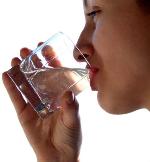 Article written by Robert Knight NZSP, and courtesy of Kinetics – physical rehabilitation specialists.
Article written by Robert Knight NZSP, and courtesy of Kinetics – physical rehabilitation specialists.
Read more articles here.
Ever wondered why you get the three o'clock slump? And why a visit to the charity snack box about this time seems to have become an absolute necessity (that has nothing to do with supporting charity!) simply to survive the afternoon.
Obviously the late night last night doesn't help but most of the time the biggest culprit is lunch and, strangely enough, sometimes the "healthiest" lunches can be the worst; the same applies to breakfast. A salad sandwich, a pot of low fat yoghurt and a handful of dried apricots would be considered by most (especially those devotees of Burger King) a super healthy lunch yet in actual fact this is exactly what is going to leave you edging towards the Child Cancer Research box and downing yet another coffee just to get you through to five o'clock.
The problem lies in the sugars lurking in the food you had at lunch time. "But I don't eat sugar," you claim. Are you sure? We can all calculate how much sweetness we add to our tea and coffee or sprinkle on our cereal but are we actually aware of how much sugar is hidden away in the other foods we consume. Take a look at that low fat pot of yoghurt for example; it actually contains four and a half teaspoons of sugar. And has anybody heard of the Glycaemic Index?.
Well those dried apricots are equivalent to a can of soft drink in the speed at which it raises blood sugar.
But don't get me wrong, sugar is not all bad, in fact it is the brain's sole source of energy so is vital. But the body and brain rely on a steady stream, not short bursts, of glucose and it is the refinement and excess that is the problem and this is what we often unwittingly consume leading to us slumping a couple of hours later.
How your body uses sugar and copes with excess.
Digestion is your body's way of breaking down large food molecules into smaller, useable molecules that it can then utilise for functions such as fuelling or repairing the body. Carbohydrates are broken down into glucose which is then combined with oxygen and burned by the body to generate energy and it is the rate at which this occurs that is important.
Most modern foods are high in sugar which is rapidly broken down causing a sudden surge in glucose levels in the blood stream. Now this can be OK if you are about to run a race and the body can burn off that fuel but if your afternoon consists of sitting on your arse then there is a problem – it's the equivalent of the turbo booster in a car squirting extra petrol into the carbeurettor when you're sitting idling at the lights; it won't take long for the car to become choked and stall.
When you eat foods high in sugar (and here is the problem as these are often hidden away- a muffin, for example, generally has the same sugar content as a piece of cake) the glucose they contain is quickly absorbed into the bloodstream giving you a quick "lift". Unfortunately this is short-lived as the body releases a hormone (insulin) that enables cells to pull the excess glucose out of your system to store (as fat!) and use later.
Consequently, the brain which relies on glucose for its functioning is deprived and, bingo, the three o'clock slump.
And what do we do? More sugar (and probably coffee) and the cycle continues.
How to combat this
Firstly, try to choose foods with a lower glycaemic index- this ensures a more gradual release of glucose into the blood stream avoiding peaks and troughs of energy levels.
Secondly, try to balance meals and snacks by adding small amounts of protein- for example, a Snickers bar lies significantly lower on the glycaemic index than does a Moro bar, simply due to the peanuts. That is NOT advocating eating Snickers bars!!!! But if you usually have a piece of fruit for morning or afternoon tea, have a few almonds or similar to balance the sugar from the fruit.
Thirdly, read labels. Food products have to list ingredients in order of quantity. Be aware that "no added sugar" does not mean no sugar. Pineapple juice, for example, can have "no added sugar" yet can actually be as high as a can of soft drink.
So what should you drink?
Basically the answer is water.
Unless you are a high performance athlete, the quantities of sugar in a "sports" drink actually have the opposite effect of hydrating you, for two reasons: firstly, if the concentration of sugar in the gut is too high, it actually draws water from the cells to dilute it causing dehydration.
Secondly, once the sugar hits the blood stream, unless it is getting utilised immediately (such as in a triathlete and even they water down all their drinks) the body responds by causing you to urinate and get rid of the excess. Once again your body is losing fluids.
"Energy'" drinks are a misnomer. The amounts of sugar and caffeine in them provide a huge short-term boost but then leave you flagging; in Scandinavian countries you can only buy them from the chemist!
And the sugar in a single McDonald's milk shake is enough to immobilise the immune system for five hours!! In actual fact a hamburger is not the bad guy in a Happy Meal when you consider the milkshake and fries.
So water it is. The standard eight glasses is a pretty good guide. If you exercise you need more.
When to drink? Water dilutes digestive enzymes so try to avoid drinking either with, or within two hours following, a meal. First thing in the morning and last thing at night and 10 minutes before a meal are ideal. And drink before you get thirsty when exercising- thirst means it is probably too late.
In Summary:
- Choose foods lower on the Glycaemic Index chart.
- If you eat something higher on the chart, try to combine it with a little protein eg: combine a banana with a few almonds.
- Try not to reach for the snack box when feeling sluggish- this perpetuates the sugar craving cycle. Try getting up and moving, it'll help to wake you up.
- Read food labels. Glucose, fructose, sucrose- they're all still sugar. As is honey. If the second (or first!) ingredient is one of these look for something else.
- If you must have a burger, have just that. Ditch the fries and shake.
- Avoid all soft-drinks. And that includes "sports" drinks such as Powerade and "energy" drinks such as 'V'.
- Drink water. Water makes up 75% of your body and 85% of your brain. Eight glasses per day is still a good bench mark, more if you are active.
- Water dilutes digestive enzymes so try to avoid drinking with a meal or within two hours following. The best times are first thing in the morning, last thing at night, and 10 minutes prior to eating.
- Thirst is the last cry for water from the body. Drink before you get thirsty, especially when exercising.








brenda1 - 16 years ago
The fat in the organic milk will help stop you feeling tired and give you energy. It helps the liver function, which also helps your blood sugar level to be normal, and also helps keep you hydrated.